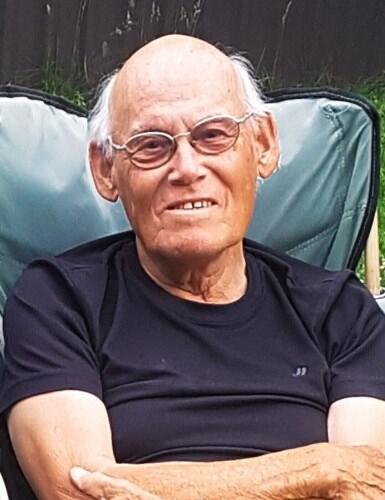An Elders-in-residence program delivered through Conestoga’s Indigenous Services office has been connecting students to Indigenous tradition and culture for more than 10 years. The program provides weekly gatherings where students learn from oral teachings to enrich their cultural and spiritual journeys.

Jim Moses was the first Elder to join Conestoga's Indigenous Services office when it opened in 2010.
“Elders are far and few between - not just in this community, but it’s something that a lot of Indigenous communities struggle with,” explained Christina Restoule, coordinator, Indigenous Services. “And it’s not that there is a shortage of individuals who are in their golden years. When we talk about Elders, we talk about individuals who are in the role of being a helper, a mentor, a teacher and a spiritual guide and who are active in doing that work.”
“Hearing stories from Elders and getting that spiritual guidance and cultural knowledge and being able to hear those oral teachings and spend time with an Elder is important,” said Restoule. “And it’s always been really important that we have that available for our students. Other institutions may only have Elders available once a month or for workshops or events, but it was really important that elders were a part of the Indigenous Services department."
Elders are available to meet with students every Friday from 10 a.m. to 2 p.m. to engage in discussion and one-on-one meetings, if requested. Recently, Elders have also had the benefit of the college’s Indigenous Teaching Garden at the Kitchener - Doon campus where they have space to engage in ceremonies and offer Sacred Fire teachings.
“A part of choosing our Elders is to make sure it’s a mutually beneficial fit - that the work that the Elders are doing here is meaningful and impactful for them,” added Restoule. “And for us as well. It’s a very reciprocal relationship and that in itself really allows students to know that the Elders that are coming in are part of our safe space.”
Restoule said it can be difficult to find those fits, but noted it’s incredibly special when they do.
“You know when the energy is uplifting and healing. These are some of the unspoken benefits of our Elders program. You know that the energy they’re bringing forward, and that students are benefitting from, is a healing energy.”
The Indigenous Services office currently includes three Elders - Lois MacDonald, Peter Schuler and Lois Thomas - who work to increase awareness and understanding of history, traditions and culture, but Restoule also reflected on the impact of Jim Moses, the first Elder to join the Indigenous Services office when it opened in 2010.
“He was a very important part of establishing what the Elder-in-residence program was going to be and students who had never been able to access a community Elder who does that work were very fortunate and happy to come - to a post-secondary of all places - to access culture in that way,” said Restoule.
“For an older gentleman, he was very active; he was very much a strong believer in physical activity - that balance of well-being and health through physical activity. He was educated; he had a Master’s in Education and did things that contributed to keeping the mind sharp. He would talk to students about the importance of some of the craftsmanship that our cultural crafts require and the focus that they take while being mindful of the teachings when doing these crafts. Traditionally, we work with our Elders in that way. They may not have a list or a set of instructions written down for you, but they show you how to do it and within that there are a lot of unspoken teachings.”
Jim recently passed away on September 28. Born at Ohsweken on the Six Nations of the Grand River Territory on July 12, 1935, he was a survivor of the Mohawk Institute Residential School and transcended his traumatic experiences there to earn his Teaching Certificate, Bachelor of Arts, and Masters of Education degrees. He served as an educator and administrator with the Waterloo Region District School Board for 35 years and was known to be an outstanding athlete, musician, artist and writer.
“Jim was a teacher through and through in both a professional and personal capacity. Jim always enjoyed meeting the students that came to see him at our Indigenous Services office. He was committed to their learning, to offering guidance, and to sharing the stories of his life,” said Trish Weigel Green, associate vice president, Student Affairs. “That sharing, though, took a personal toll as a constant reminder of a painful past. Despite this, he showed constant kindness to all of those around him, and Conestoga benefitted greatly from his willingness to contribute to our students and our community.”
Jim’s life will be honoured at Conestoga’s next Annual Traditional Pow Wow, scheduled for Saturday, February 25, 2023.
"We are very fortunate to have the Elders that we have, but we also acknowledge and recognize that we only have them for a short time," said Restoule. "It will come to that point in our journey with them that they will step away or pass on, but we are very grateful to have them be part of our programming."
Conestoga's Indigenous Services (Be-Dah-Bin Gamik) established over a decade ago, supports the success of Indigenous students through ongoing services that assist in successful transitions to college life and connections to cultural traditions. Be-Dah-Bin Gamik also engages the broader college community through the development of resources, activities and events that build broader understandings of Indigenous Peoples and cultures while promoting the reconciliation process.
